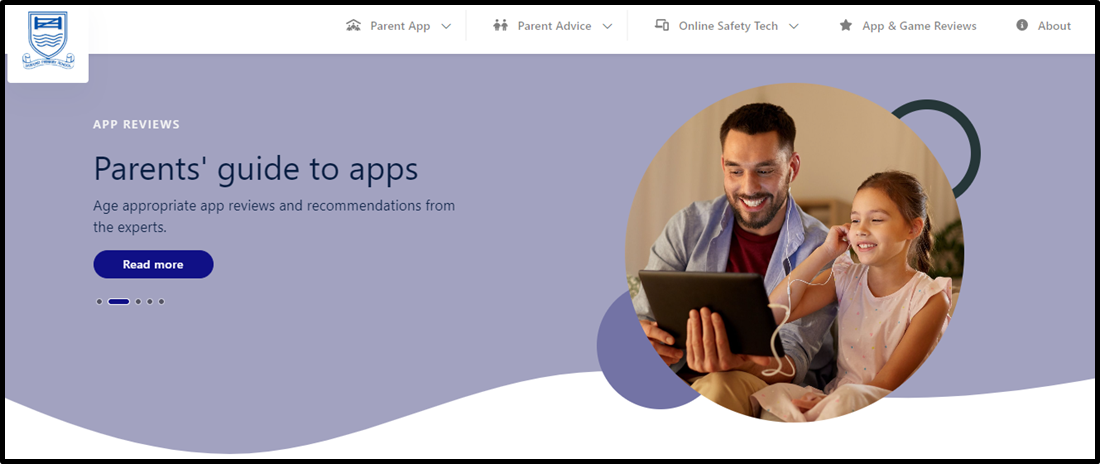Safeguarding

Safeguarding at Barford Primary School
Safeguarding children is of paramount importance to us at Barford Primary School and is the responsibility of every adult within our school community. If you have any concerns about the welfare of any child in our school, please do not hesitate to speak to one of our Designated Safeguarding Leads.


Safeguarding is an umbrella term and covers many more aspects than just child protection.
Child Protection is protecting children from identified risks – originally focused on abuse at home, it is now a wider concept to include bullying, abuse through new technologies etc.
Safeguarding extends child protection to include preventing harm and promoting the well-being of children.
Safeguarding is:
- Protecting children from maltreatment
- Preventing impairment of a child’s health or development
- Ensuring that children are growing up in circumstances consistent with the provisions of safe and effective care
- Create opportunities to enable children to have optimum life chances in adulthood.
- (2004 Children’s Act)
School Policy
Barford Primary School recognises the responsibility it has under Section 175 of the Education Act 2002 and the requirements of the 'Safeguarding Children in Education' to have arrangements in place to safeguard and promote the welfare of children.
Through their day-to-day contact with pupils and direct work with families, staff at the school have a crucial role to play in noticing indicators of possible abuse or neglect and referring them to the appropriate agency, normally the appropriate Children’s Team (Social Care).
‘Under the Education Act 2002 (Section 175 for maintained schools), schools must make arrangements to safeguard and promote the welfare of children. Parents/carers should know that the law (Children Act 1989) requires all school staff to pass on information which gives rise to a concern about a child’s welfare, including risk from neglect, physical, emotional or sexual abuse. Staff will seek, in general, to discuss any concerns with the parent/carer and discuss the need to make a referral to Children’s Social Care if that is considered necessary. This will only be done where such discussion will not place the child at increased risk of significant harm or cause undue delay. The school will seek advice from Children’s Social Care when they have reasonable cause to suspect a child may be suffering or likely to suffer significant harm. Occasionally, concerns are passed on which are later found to be unfounded. Parents/carers will appreciate that the school’s Designated Safeguarding Lead carries out their responsibilities in accordance with the law and acts in the best interests of all children.’
This policy sets out how the school’s Governing Body discharges its statutory responsibilities relating to safeguarding and promoting the welfare of children who are pupils at the school.
Four of the main elements to our Policy:
- Prevention through the teaching and pastoral support offered to pupils and the creation and maintenance of a whole school protective ethos.
- Procedures for identifying and reporting cases, or suspected cases, of abuse.
- Support to pupils who may have been abused.
- Preventing unsuitable people working with children through safer recruitment practices
Our Policy applies to all staff and volunteers working in the school (education support services). Teaching assistants, mid-day supervisors, site staff, office staff as well as teachers can be the first point of disclosure for a child. Concerned parents may also contact school Governors.
View our Safeguarding and Child Protection Policy 2023 here
Online Safety
We teach our children and families about ways to stay safe online. Our ICT lead holds online safety safeguarding assemblies and we run parent workshops to ensure our parents are fully equipped so that they can safeguard their children online.
At Barford we have our own online safety Hub, where parents can access lots of information to help them feel confident in supporting their children. Click on the picture below to visit the site.
Barford Primary School works hard to ensure that new technologies are used well to enhance learning opportunities. However, we recognise that children, parents, staff and governors need training on how to deal with online safety issues. We believe that children need to be aware of these issues in order to protect themselves and also to enable them to take advantage of the wealth of information that the Internet offers.

Online Safety at Barford is comprehensive and is embedded through:
- a progressive ‘Digital Literacy’ curriculum that is taught in every year group staff training, delivered annually (or more often if appropriate), as possible risks from new technologies arise;
- an Acceptable Use Policy;
- forensic software (Securus) to monitor acceptable use;
- parent updates and support via newsletters and the website;
- our Safer Internet Policy which is updated annually.
This approach aims to create a managed system in school, where pupils are fully aware of the risks, including cyber-bullying, and actively try to prevent them from occurring. They understand very clearly what constitutes unsafe situations and are highly aware of how to keep themselves and others safe using the school Turn off and Tell and SMART rules.
Are you worried about a child?
Prevent
Prevent is one of four work strands which make up the government‘s counter-terrorism strategy – CONTEST. The aim of CONTEST is to reduce the risk to the UK and its interests overseas from terrorism.
- Pursue – focuses on detecting, investigating and disrupting terrorist threats to the UK and our interests overseas.
- Protect – aims to reduce the vulnerability of the UK and UK interests overseas to terrorist attack. This includes aviation security for both cargo and passengers.
- Prepare – aims to minimise the impact of any attack, manage any incidence of an ongoing attack and recover quickly and effectively
- Prevent – aims to stop people becoming terrorists or supporting terrorism
As the preventative strand of CONTEST, Prevent will:-
- Respond to the ideological challenge of terrorism and the threat faced by the UK from those who promote it
- Prevent people from being drawn into terrorism and ensure they are given appropriate advice and support
- Work with a wide range of sectors (including education, criminal justice, faith, charities, the internet and health) where there are risks of radicalisation which need to be addressed
As part of Barford Primary School’s ongoing safeguarding and child protection duties, we are fully behind the government’s Prevent Strategy. All staff receive regular training from an accredited PREVENT Facilitator on what Prevent is about and how to deal with any issues they may see inside or outside school.
Parent Booklet: We All Have the Right to Feel Safe
Practical Advice for Keeping Children Safe
BIRMINGHAM SAFEGUARDING
The Children's Advice and Support Service (CASS) provides a single point of contact for professionals and members of the public who want to seek support or raise concerns about a child.
We want to keep all children and young people in Birmingham safe from harm. If you are concerned about a child please contact us. We will listen, assess your concerns, and can take action if a child is at risk.
If you're not sure whether a child is at risk you can discuss the circumstances with us or with someone else who works with children, such as a teacher, health visitor or the NSPCC. All professionals who work with children have a responsibility to safeguard them and will know how to help.
Tel: 0121 303 1888
Emergency out-of-hours
Tel: 0121 464 9001
NSPCC
We understand that sometimes it's hard to know what to do or whether to report a concern or not. We can help you spot signs of danger and give you advice to prevent abuse and protect children.
Whatever your worry, you can ask us.
Call us on 0808 800 5000, text 88858 or email: help@nspcc.org.uk
CHILDLINE
When you call us on 0800 1111 you’ll get through to a counsellor, they’re there to listen and support you with anything you’d like to talk about. Or you can have a 1-2-1 counsellor chat online.
Childline is open 24 hours a day, 7 days a week. So you can talk to us any time. But we might not be able to talk for as long when it’s after midnight.
Women's Support Services
BIRMINGHAM & SOLIHULL WOMEN'S AID
Are you experiencing or concerned about domestic violence?
Are you worried about a friend or family member who could be experiencing domestic violence?
Are you not sure what to do, where to turn, or who to trust?
You are not alone.
Every day, Birmingham and Solihull Women’s Aid helps women who make the difficult decision to ask for help and get in contact with us.
Our helpline team is specially trained to listen and help you if you are concerned about your safety, need to leave your home, worried about money, your health or wellbeing, or your children.
Contact our free Helpline on 0808 800 0028
Monday to Friday, 9:15am to 5:15pm.
We can use Text Relay if you are deaf, hard of hearing or have a speech impairment.
If you’re a friend, family member or a professional working with someone who may be experiencing domestic violence, we can advise you on how to support them. However we cannot contact anyone on your behalf; the decision to contact us must be made by the woman herself.
UK ASIAN WOMEN'S CENTRE
Supports women to establish and deliver services on a wide range of issues affecting Asian women: from mental health, learning disabilities, advocacy and interpreting and mentoring projects for women experiencing domestic violence.
Opening Times
Mon – Fri: 09.00 – 17.00
Tel: 0121 523 4910
BHAROSA
Bharosa is a domestic abuse service for ethnic minority women (particularly those from a South Asian background) living in Birmingham.
We provide a free service which is confidential and unbiased for women and young girls over the age of 16, who are experiencing any form of domestic abuse. The service we provide is culturally appropriate and sensitive to the needs of the women that we support.
Tel: 0121 303 0368 or 0121 303 0369
Fax: 0121 303 0367
Email: bharosa@birmingham.gov.uk
We are available from 9am to 5pm Monday to Thursday and 9am to 4 pm on Fridays.
Adult and Child Support Services
AQUARIUS
At Aquarius we strive to help people overcome the harms caused by alcohol, drugs and gambling. We work closely with individuals, families and friends to lessen the impact caused by the behaviour of a loved one. Overcoming an addiction can be a difficult process but you can be sure that our staff will be dedicated to giving you and your family the attention and support that you need. We will be there to help you with each step of your journey along the way to recovery and to help you look forward to the future with the confidence that change is possible.
Tel: 0121 414 0888
SAMARITANS
Talk to us any time you like, in your own way, and off the record – about whatever’s getting to you. You don’t have to be suicidal.
Find out why our service works and what you can expect when contacting us.
If you have any concerns about our service before you try it, hear from others about how we've helped them. Please don’t suffer alone.
Tel: 0121 666 6644 (24hrs)
SHELTER
Shelter helps millions of people every year struggling with bad housing or homelessness through our advice, support and legal services. And we campaign to make sure that one day, no one will have to turn to us for help.
We’re here so no one has to fight bad housing or homelessness on their own.
Tel: 0808 800 4444
Food Banks
LADYWOOD FOOD BANK
Ladywood Foodbank – Labour of Love Ladywood Seventh-Day Adventist
Church,
13 Guild Close,
St. Vincent Street West,
Ladywood,
Birmingham, B16 8RP.
Please call us on 07767152291 Monday - Thursday 10am - 2pm, if you require advice, food parcels or even when making a donation.
Or you can also email us on the below email address.
Email:
BIRMINGHAM FOOD BANK
Resource Central,
121 Camden Street,
Birmingham,
B1 3DJ
Tel: 0121 236 2997
Email:

